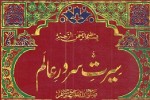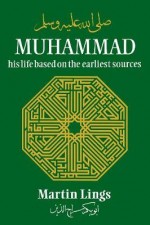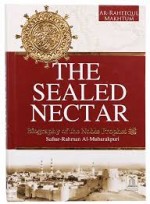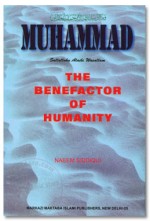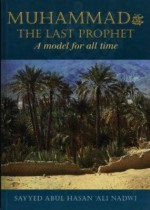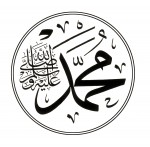IT is strange that, with all that has been written about Prophet Muhammadï·º (peace upon him), the world still does not know about the unparalleled personality of the last messenger of Allah and compassionate leader of humanity. Allah has given him the title of “mercy for the two worlds” and has called him gracious and merciful. Most people, however, have not learned of the Prophet’s sympathy and compassion for the community. He was a cool shade of mercy and an arm of love and kindness for victims, the helpless, and people in need. If the people who love him do not present the correct introduction of him, then who would be responsible for his wrong description? We have not been able to show the world the love and affection of the Prophet (peace upon him) and the beautiful magnificence of his mercy and kindness. We have not told people how he used to pray during the night for their guidance and salvation and how he used to grieve for his enemies and was restless to improve them and remove them from destruction..L
The world knows about the wars and battles that occurred in the Prophet’s era and in the era of the caliphate but not that the initiative was not taken by him but by the enemies. These were forced on him, and he did not force them. These wars and battles were different from the normal wars of the world and were not fought against the general public but against criminals and tyrants. These wars were fought to wipe the tears of the weak and the victim and to protect the human rights --not force anyone into Islam. These wars were fought to rescue the people from the clutches of the tyrant and to give them honor in the society and to give independence.
Prophet Muhammadï·º (peace upon him) gave proper instructions to his companions that only those who attacked should be fought. They should not raise their hands on any child, elderly person, or woman.
At the Battle of Badr, which was the first war in the Islamic history, he informed his companions that these specific tribes have not come on their own but had been forced; therefore, they should be spared if possible.
Our responsibility is to reflect his mercy and love for humanity, bear their excesses, have patience, and remove them from darkness towards light. If someone speaks poorly of Prophet Muhammadï·º (peace upon him) or insults him, instead of raising hue and cry over it, we should try to guide him to correct understanding. It is a saying of our Prophet Muhammadï·º (peace upon him), “If Allah gives guidance to one person through you, it is much better than a long queue of Red Camel.”
Wasn’t the Prophet (peace upon him) abused in his life and directly insulted, and didn’t the Prophetï·º and his companions bear patience? Not even the Prophet his companions were exempt from struggle and persecution. Insults were made against Allah as well. Sometimes they challenged the divine power of Allah; sometimes they made a mockery of Him, and sometimes they insulted Him. Our Prophet (peace upon him) and his companions would listen to all these inflammatory statements with complete patience.
Instead of following the holy Prophet and holy companions, we become victim to deaf and dumb sentimentality. By our emotional actions, we become the source of reducing the Prophet’s glory, leave alone the material and financial loss that we pick up.
This article is written to raise the same consciousness and feeling of the community.
If a person wishes to reform a person and he succeeds in his attempt and goals in a period of 20-25 years, it would be considered as a great victory and deserves big congratulations on this success. It is a remarkable achievement that Prophet Muhammadï·º (peace upon him), in just twenty-three years, was able to turn the tide on the whole peninsula of Arabia. He purified the whole of the Arab peninsula from the evil of polytheism and infidelity. It was under the power of thousands of gods and goddesses, and he made it the center of monotheism. There had been so much killing and destruction that traveling outside one’s own territory invited danger and even death. In a very short span of time, Prophet Muhammadï·º (peace upon him) turned these savage people into human beings with honor and integrity. The Arab peninsula became a cradle of peace and security.
In this environment of love for wealth and worldliness, Allah revealed this verse:
“Who is it that would loan Allah a goodly loan so He may multiply it for him many times over?” (02: 245).
A companion of Prophet Muhammadï·º, known as Abu Dahdah, came to him and said, “Does Allah ask a loan from us?” The Prophet replied in affirmative. He said, “Please extend your hand, O Messenger of Allah,” and when he did, Abu Dahdah said, “O Allah’s messenger! Be witness that I have given this whole Garden to my god as loan” (Imam Al-Baihaqi – Shob Al-Iman – Hadith No. 3178).
There were numerous such instances in this era of blessings and greatness. How was it possible to bring such a major change in such a short span of time? The reality is that this was the miracle of the Holy Quran with its charisma of spiritual and insightful verses and also the result of the compassionate nature of Prophet Muhammadï·º (peace upon him).
The Prophet was sent as a mercy for all, and indeed he was a mercy. He was a model of love and affection. He was a well wisher for humanity and desirous for welfare of each single person. He was distressed to see human beings going towards destruction.
He once made a statement on his condition:
“My condition is like a person who lights a fire, and when the fire spreads, and the insects and moths which collect around it start falling into it, the person may try to stop them from falling into the fire, but he is unable to do so. They are falling recklessly into the fire and burning to ashes. My condition is the same in that I am trying to stop you from falling into the fire and telling you to save yourself from the fire.”
In many places in the Holy Quran, Allah mentions the Prophet’s earnestness in a very beautiful manner:
“Then perhaps you would kill yourself through grief over them, if they do not believe in this message, out of sorrow” (18: 6).
“Perhaps you would kill yourself with grief that they will not be believers” (26: 3).
“Then is one to whom the evil of his deed has been made attractive so he considers it good? For indeed, Allah sends astray whom He wills and guides whom He wills. So do not let yourself perish over them in regret. Indeed, Allah is Knowing of what they do” (35: 8).
The condition of the Prophet (peace upon him) was not temporary but permanent. He heard the abuses, and he prayed.
There was a town at a distance of 120 kilometers from Makkah which is famous by the name of Taif. Some historians say that the distance is 60 miles. The Prophet (peace upon him) went alone to Taif on foot. (Some tradition says that the slave Zaid bin Harithah went with him.) He went there to warn them of the serious results of polytheism and infidelity and the consequences of the disobedience of Allah. But these miserable people retaliated love with hatred, kindness with evil. They went to the extreme in cruelty and barbarism and threw stones at him so that he started bleeding from head to toe. Despite this brutality, Prophet Muhammadï·º (peace upon him) never uttered anything against them. He did not complain or cry for help. In this tense environment, he stayed for ten days. He went from door to door and presented his message. He was abused but still invited them towards truth. He was kicked, but he still called them towards Islam.
Whenever he was faced in this situation he only prayed for them:
“I hope that Allah will bring them from their misfortune to worshiping Allah without associating anything.”
“May Allah forgive my community; they don’t know.”
It is honorable to pray for an enemy, as did Prophet Muhammadï·º (peace upon him). He was abused and threatened for many years, but he persisted.
Whenever he nominated representatives for the different regions and states of the nascent Islamic empire, he would issue orders for them to be righteous, God-fearing, and just, and an example of the best of humanity. May we all represent the Prophet (peace upon him) by reflecting true Islamic values, morals, and ethics and be kind and loving to all people. Let them see the high character of our Prophet by the way we live.
(Translated, abridged, and edited from the Urdu article written by Maulana Muhammad Inayatullah Subhani, published in Dawat, New Delhi, October 22, 2016.)
